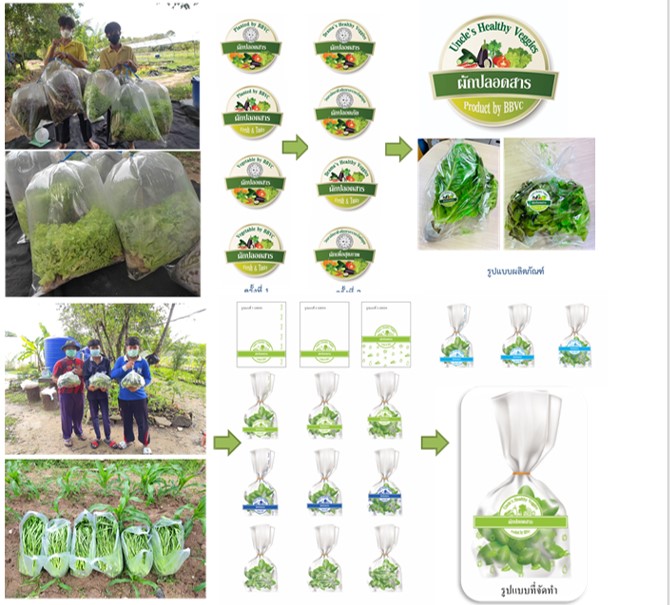MHESI by Expert Centre of Innovative Agriculture (InnoAg) of TISTR implemented ‘BCG Farming@Samui Island project’, funded by the National Research Council of Thailand (NRCT), by using STI to build a model of sustainable self-reliant community in the areas of 70 Rai of Koh Samui District, Surat Thani Province. The project aims to develop a concrete model of production, processing and marketing beneficial to the communities in the area, and serve as a BCG technology transfer center for other areas.
Dr. Chutima Eamchotchawalit, a Governor of TISTR, said that COVID-19 caused Samui Island’s economy to enter the recession period, affecting Thailand’s tourism business since most tourists are foreigners at 95%. Labor employees also return to their home countries. In terms of geographic conditions, Samui is an island so it is difficult to travel in and out. BCG policy for agriculture is one solution for this communities to produce and process foods for their consumption, reduce costs in households, form groups of members to work together to change and process inputs and outputs, create jobs, incomes, and circular economy within their sustainable self-reliant community.
The project of ‘BCG Farming@Samui Island’ aims to build a concrete model according to BCG policy for agriculture, serving as a site visit and a technology transfer center on how to utilize biodiversity for agriculture, to produce and process agricultural yields into value-added products, and to train the trainers at the center to transfer technologies to people in the areas, so that communities could develop themselves according to BCG policy.
Dr. Rochana Tangkoonboribun, a Director of InnoAg, added that the project of ‘BCG Framing@Samui Island’ integrated many TISTR research units: an Expert Centre of Innovative Health Food (InnoFood), an Expert Centre of Innovative Herbal Products (InnoHerb) and Thai Packaging Centre (TPC), by using STI to implement the project, from upstream (agriculture), midstream (food and cosmetic processing), and to downstream (green packaging), based on local resources and be implemented by local communities.
Starting at Bhavana Bodhigun Vocational College, located at Na Meang Sub-district, Koh Samui District, Surat Thani Province, the project consisted of many activities: (1) greenhouse plantation; hydroponic plantation and high-valued planting system, (2) productivity in herb and mushroom plantation; (3) selenium-enriched rice plantation, (4) food processing products from agriculture crops; low-fat salad dressing, crispy mushroom, mushroom chili paste, crispy rice, egg white jelly, crispy banana and dried banana, (5) cosmetic products from agriculture crops; herbal extract, shampoo and conditioner, liquid and bar soup, body and facial lotion, and (6) green packaging for these processing products.
At the College, there were 5 mushroom houses for total 10,000 mushroom pieces production which transfer mushroom technology and knowledge to the communities, such as, complete economic mushroom cultivation, mushroom production for commercialization, and mushroom cultivation in plastic bag system. Workshops and training programs were conducted to transfer selenium-enriched rice and selenium-enriched organic fertilizer productions to the farmers outside the college, as well as, selenium-enriched rice production field of 3 Rai were set up, where the farmers can harvest and sell rice crops for their jobs and incomes.
General information: Samui Island covers an area of 152,723 Rai and consists of 7 Sub-districts. Samui Island’s economy relies on tourism, services and agriculture. Tourism generates the highest income to Samui Island at 9,000 – 12,000 million Baht per year approximately. In terms of agriculture, coconut is an important economic crop with plantation areas of 89,250 Rai, following by fisheries, plantation and aquaculture as small activities.
If you need further information, or have any queries, or be interested in our services, please contact Expert Centre of Innovative Agriculture (InnoAg) of TISTR, via telephone number: 0-2577-9004, email: tistr@tistr.or.th










Views: 653


